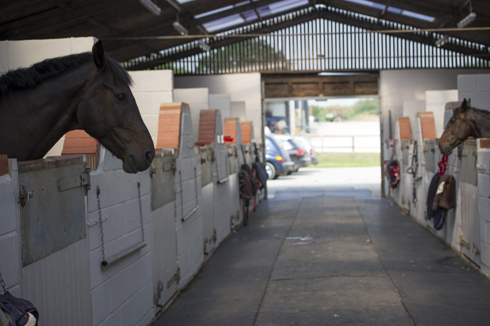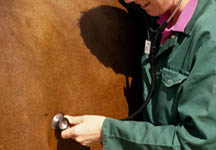Defra is “monitoring the situation” after a group of horses in the UK is known to have “had some contact” with equines infected with equine infectious anaemia (EIA).
The horses are thought to be at “low risk” as the infected horses they were in contact with, who were not in the UK, were not showing any clinical signs.
EIA is a viral disease that attacks a horse’s immune system. It is not known to be present in the UK and the last outbreak in Britain was in 2012.
It is a notifiable disease, meaning owners must contact Defra and the Animal and Plant Health Agency if they suspect their horse has EIA.
There is no cure and it can be spread through contaminated blood, blood products, instruments or needles, and by blood-sucking insects.
In early July, EIA outbreaks were reported in Germany and the Netherlands, connected to the import of some Argentinian polo ponies between 2008 and 2012.
Mark Bowen, British Equine Veterinary Association vice-president, said at the time that the outbreak is a reminder to everyone working with horses to remain vigilant about exotic disease.
“However, the risk of spread through the native equine population in the UK remains very low,” he said.
“Post-importation controls and checks should help to limit entry of infected animals into the UK, but previous isolated cases that have been detected in the UK have not resulted in onward spread to other horses.
“Given that the primary route for spread of infection is through biting flies, separation of horses and use of efficacious fly repellants can further reduce risks.
“That does not mean that routine hygiene and biosecurity should be overlooked, since direct and indirect transmission via equipment is possible.”
Article continues below…
You might also be interested in:
Advice on the signs and transmission of EIA
The British Equine Veterinary Association has raised concerns

EIA (swamp fever) — the signs

Biosecurity: how to protect your horse from diseases

Vets’ fears over illegally imported semen
A Defra update, dated 25 July, stated that Germany had reported three further outbreaks of the disease. According to German authorities, 13 polo ponies have tested positive at nine separate premises.
Spain, Switzerland, Hungary and the Republic of Macedonia have also reported cases.
“Disease control measures are in place in all the countries mentioned above and this includes culling infected animals,” said a Defra spokesman.
“Restricting and tracing other contacts are also under way in Germany, Spain, Switzerland and Netherlands.
“Within that framework there are six equidae identified on one holding in the UK which have had some contact with infected horses and are therefore similarly under restriction while testing takes place.
“Because the contacts have been with horses not showing any clinical signs, these are more than likely to be low risk tracings, nevertheless we will continue to monitor the situation.”
Click here to read the full Defra statement
For all the latest news analysis, competition reports, interviews, features and much more, don’t miss Horse & Hound magazine, on sale every Thursday



